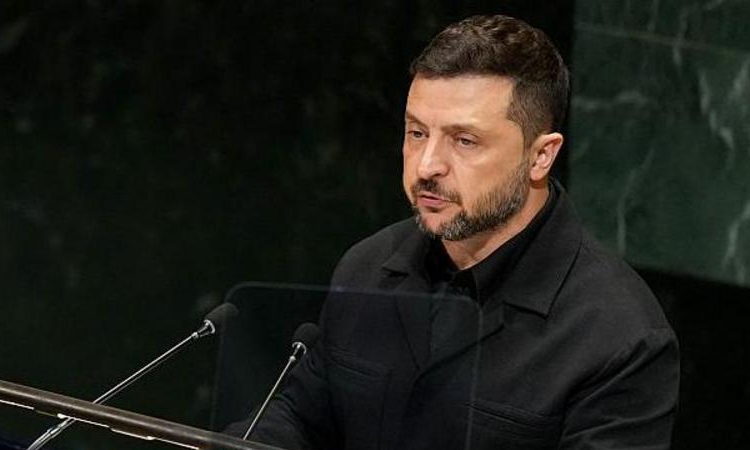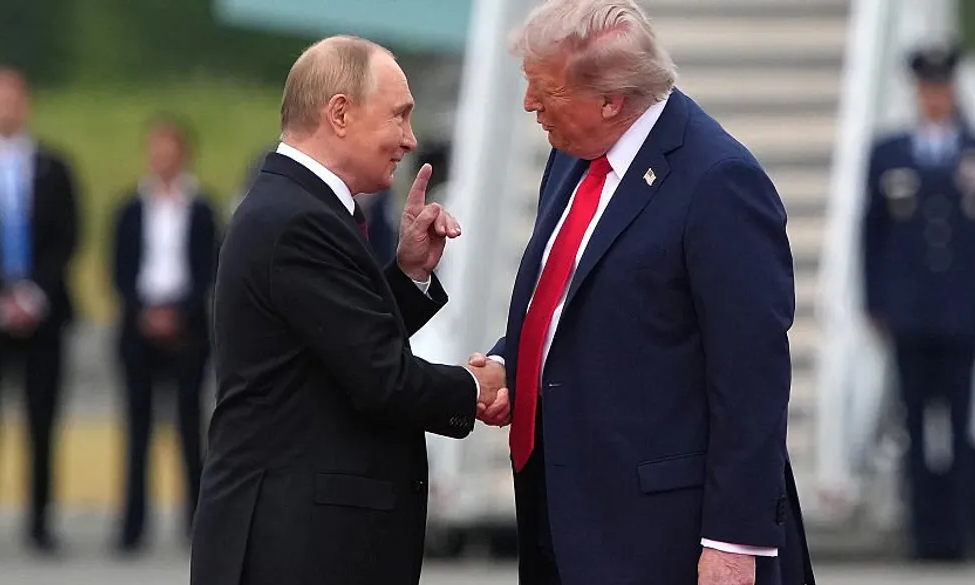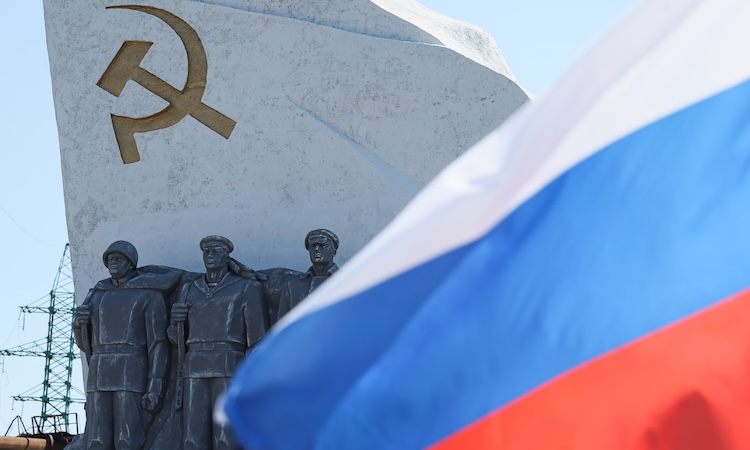On Saturday 24 June, Yevgeny Prigozhin, head of the Wagner private military group, occupied key points in the southern Russian city of Rostov-on-Don, after which he began a march towards Moscow with a view to effecting a change in the composition of the Russian government, if not its complete overthrow.
For months leading up to this ultimate act of treachery, Prigozhin had been railing at the Russian military high command, calling it impotent, incompetent and corrupt. Special targets of his venomous denunciations were defence minister General Sergei Shoigu and chief of the general staff General Valery Gerasimov, whom he accused of withholding ammunition from Wagner combatants.
Finding no support whatever from any military units, business circles or politicians, Prigozhin ordered his convoy, which had been trundling for a few hours in the direction of Moscow, to turn back. Within 23 hours, the insurrection had spectacularly collapsed.
A loose cannon on the deck
So what caused this foul-mouthed individual to embark on such a hazardous enterprise? The answer lies in a mixture of frustration, vanity and money. Facing the imminent transfer of Wagner’s cadres in Ukraine from his control to the Russian ministry of defence, this loose cannon on the deck decided to turn on his masters.
After the start of Russia’s special military operation (SMO) on 24 February 2023, Wagner had the responsibility for the fighting in Soledar and Bakhmut, two salt-mining towns that had been heavily fortified by the Ukrainian army. The performance of Wagner in this ‘meat grinder’ (so dubbed because of the heavy death toll in the fighting for control of Bakhmut) helped to transform the group into a legendary fighting force in the popular Russian imagination. In the process, Prigozhin’s stature was considerably elevated, achieving a well-deserved martial reputation.
Wagner did indeed dominate the battlefield, but it also relied on the Russian military for the weapons, ammunition and logistical support essential for sustaining its operations.
From the start, Wagner was an adjunct of Russian military intelligence (the GRU), and responsive to the demands of the Russian general staff. It occupied a shadowy space between being an agent of government policy and an independently-funded military contractor.
After the start of the special military operation, the role of Wagner expanded in Donbass to that of a major combatant, equipped with heavy weaponry, including armour, artillery, and even fixed-wing aircraft.
After the 22 September 2022 referendum in Donbass, which incorporated four formerly Ukrainian provinces into Russia, an entirely different scenario arose. Russian law does not allow private armies to operate on Russian soil, so Wagner could not be allowed to function in the same way.
While the battle for Bakhmut was raging, the Russian authorities tolerated this contradiction. All the same, military support for Wagner was cut back somewhat, bringing Prigozhin into conflict with Generals Shoigu and Gerasimov.
Prigozhin’s volatile behaviour and his increasingly abusive diatribes against Russia’s military command not surprisingly caught the attention of pro-Ukrainian information warfare specialists, who began systematically to promote Prigozhin’s narrative about the Russian army being corrupt, incompetent and impotent.
A western intelligence recruit?
It was not long before Prigozhin’s antics were latched on to by British and US intelligence. Prigozhin’s vanity, greed and sense of self-importance made him an ideal candidate for recruitment by hostile intelligence services.
The Russian government required Wagner fighters to sign legally binding contracts with the ministry of defence to be allowed to continue to serve in combat units in Donbass, the deadline being 1 July 2023.
Scott Ritter, from whose recent article much of the information in this article is drawn, is of the view that there was collusion between the Ukrainians and Prigozhin. Such collusion “while unproven at this juncture, appears obvious in retrospect”.
A key indication cited by Mr Ritter is the decision by the Ukrainians to send so-called ‘anti-Putin’ Russian forces across the border into the Belgorod region of Russia, “helping to create the impression of Russian impotence and incompetence, notions which Prigozhin was only too happy to magnify on his Telegram channels”. This was a message that received further dissemination by Ukrainian controlled Telegram channels, including those which operated under the guise of serving ‘Russian patriots’ – all for the purpose of causing the implosion of Vladimir Putin’s government.
The plan to destroy Russia
The destruction of Russia, and its break up into several easily digestible pieces in order to loot Russia’s vast natural resources and exploit its highly-skilled and cultured people, has all along been the goal of Nato’s proxy war against Russia. To this end, Nato and the European Union applied draconian economic sanctions against Russia after the launch of the SMO in February 2022.
This economic tool failed utterly. Far from bringing the Russian economy to its knees, the sanctions have caused severe harm to the economies of the imperialist countries imposing them. All except the USA, which has been the only country to benefit from this economic warfare at the cost of its supposed allies, especially Germany, which is on course to fall into a deep recession.
Germany, the economic powerhouse of the EU, was built on cheap energy and export markets. By obeying the US diktat on sanctions against Russia, Germany has shot itself in the foot, depriving itself of cheap Russian oil and gas, as well as of access to the Russian market and Russian investment opportunities.
It is now clear that through these sanctions, the USA was attempting to kill two birds with one stone – to destroy the Russian economy and to knock out its German industrial competitor. While it has failed in the aim of harming the Russian economy, it has delivered a devastating blow to the German economy thanks to the course adopted by the government of dim-witted Olaf Scholz.
Other imperialist European economies are also suffering, having likewise deprived themselves of access to Russia’s energy and markets. Higher energy prices consequent upon the sanctions have driven energy bills through the roof and further accelerated the inflationary spiral, causing central banks to raise interest rates and propel millions into bankruptcy.
Having found the economic sanctions a total failure, the collective west, namely US imperialism and its British and European vassals, doubled down by sending scores of billions of dollars-worth of lethal armaments to their nazi Banderite puppets in Ukraine in order to try and defeat Russia on the battlefield. That too has proved a total failure, as is attested by the collapse of the much-touted Ukrainian counteroffensive.
Now, the last weapon of the imperialist west against Russia is to cause internal dissension in an effort to bring down the government headed by Vladimir Putin, who became the target of their visceral hatred when he helped to put Russia on its feet after the shambles it had been reduced to under notorious drunkard Boris Yeltsin.
President Putin has also earned imperialist ire by helping to thwart the imperialist attempts at regime change in Syria and Kazakhstan. Even worse, under his leadership Russia has formed close and friendly relations with the People’s Republic of China (PRC).
Everywhere imperialism finds its path to the unbridled looting of other countries hindered by the PRC and the Russian Federation. No wonder Vladimir Putin and President Xi Jinping of China have become the targets of a non-stop imperialist campaign of malicious propaganda and blatant lies.
Russian resilience
But their hopes of regime change in Russia through internal dissension and military rebellion have met the same fate as the economic sanctions and military support for their nazi Ukrainian flunkeys. If the purpose of Prigozhin’s treacherous mutiny was to achieve the downfall of Putin’s government, it has failed miserably. No political leaders, no leaders of Russian military units, no leaders of business, rallied to Prigozhin’s cause.
It was clear that Russian society was solidly behind President Putin, and supportive of his goal of crushing this insurrection using all means necessary. The Chechen Akhmet army was ready to move against Prigozhin and the few thousand combatants who had been deceived into taking part in his criminal enterprise, informing him that if he did not surrender he would be killed and his followers defeated and disarmed.
This is what brought Prigozhin to his senses, forcing him to halt his march on Moscow and to tell his fighters to turn back. The mutiny, on which imperialism had placed its hopes of rescuing its failing proxy war against Russia, and which had aroused such excitement in the imperialist camp, ended farcically in less than a day, dashing in the process all imperialist hopes and prayers.
Prigozhin and the few thousand who followed him, and who, in view of their robust performance in Bakhmut, had quite rightly been viewed by the Russian people as heroes, by treacherously seeking to stick a knife in Russia’s back at a time of great peril to the survival of the country, overnight turned themselves into traitors. Prigozhin metamorphosed in the space of 24 hours from hero to zero.
If money was the major motive behind Prigozhin’s adventurist and foolish act of treachery, he stands to lose it all in the aftermath of his failed insurrection. The Wagner group had a contract with the Russian ministry of defence for $940m for its operation in Ukraine. In addition, there was a separate deal to the tune of $900,000 for food supply to the Russian army using Prigozhin’s catering company. The special military operation had for Prigozhin been very profitable indeed.
Wagner’s contract with the ministry of defence expired on 1 May of this year. If desperation to keep money flowing into his bank account was one of the reasons for Prigozhin embarking on armed rebellion, the failure of that rebellion has put paid to the source of his revenue.
According to US intelligence, in February 2023 Prigozhin and the Ukrainian intelligence service began communicating directly with one other. Ukrainian intelligence apparently played on Prigozhin’s paranoia and frustration. The fear, and impact, of losing $2bn worth of contracts led him to enter into a life-and-death struggle with Generals Shoigu and Gerasimov.
The fighting in Bakhmut concluded on 20 May 2023. The CIA briefed the Biden administration on the existence of the plot, as did MI6 the British prime minister.
Following the collapse of the mutiny, the western press was filled with articles asserting that it had nevertheless weakened President Putin’s grip on power. This is just the type of wishful thinking that has characterised the imperialist mindset through every stage of the conflict in Ukraine.
As a matter of fact, Mr Putin has emerged from this act of treachery stronger than ever, with the overwhelming majority of the Russian population solidly behind him and his government. The fighting in Ukraine is going well for the Russian armed forces, while internationally the support for Russia has not waned one whit.
Instead of bringing Putin’s government down, many imperialist governments stand a good chance of themselves being brought down by electorates fed up with the cost of living crisis, perpetual austerity and deteriorating living standards that stand alongside their governments pumping billions into an unjust and unwinnable war in Ukraine.
Britain has already gone through five prime ministers in seven years; Scholtz faces a similar prospect in Germany as does Emmanuel Macron in France.
Meanwhile, we learn that Prigozhin has left Russia for asylum in Belarus. How long he will be allowed to stay there, whether he will ever be allowed to return to Russia and under what conditions, we do not know. The coming days and months will bring much more to light, and we can only await unfolding reality, though its broad contours are already clear.















